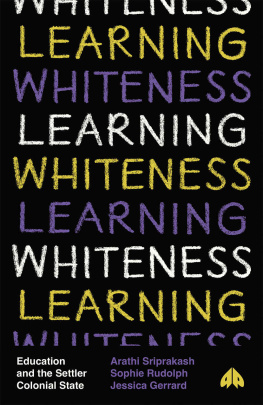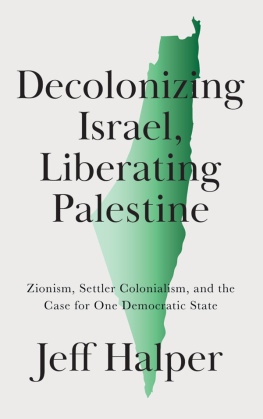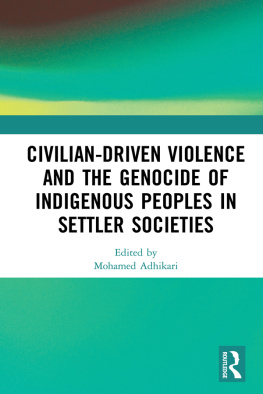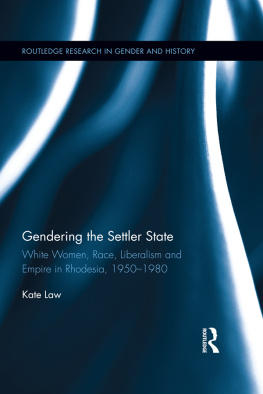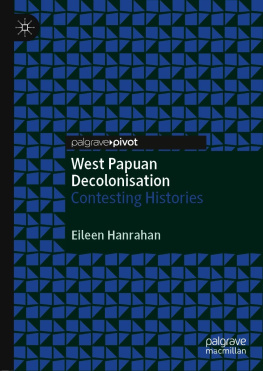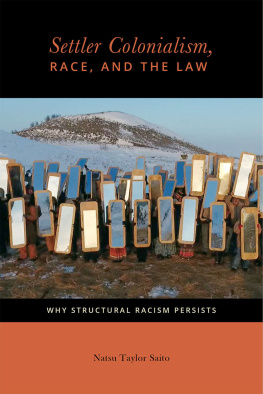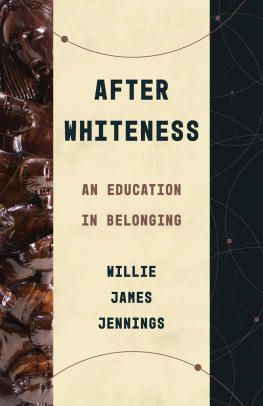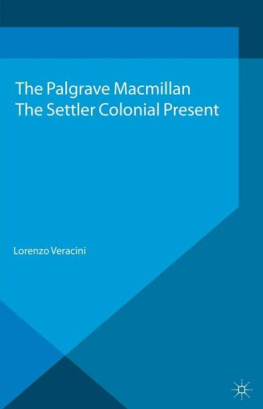Arathi Sriprakash - Learning Whiteness: Education and the Settler Colonial State
Here you can read online Arathi Sriprakash - Learning Whiteness: Education and the Settler Colonial State full text of the book (entire story) in english for free. Download pdf and epub, get meaning, cover and reviews about this ebook. year: 2022, publisher: Pluto Press, genre: Politics. Description of the work, (preface) as well as reviews are available. Best literature library LitArk.com created for fans of good reading and offers a wide selection of genres:
Romance novel
Science fiction
Adventure
Detective
Science
History
Home and family
Prose
Art
Politics
Computer
Non-fiction
Religion
Business
Children
Humor
Choose a favorite category and find really read worthwhile books. Enjoy immersion in the world of imagination, feel the emotions of the characters or learn something new for yourself, make an fascinating discovery.
- Book:Learning Whiteness: Education and the Settler Colonial State
- Author:
- Publisher:Pluto Press
- Genre:
- Year:2022
- Rating:3 / 5
- Favourites:Add to favourites
- Your mark:
- 60
- 1
- 2
- 3
- 4
- 5
Learning Whiteness: Education and the Settler Colonial State: summary, description and annotation
We offer to read an annotation, description, summary or preface (depends on what the author of the book "Learning Whiteness: Education and the Settler Colonial State" wrote himself). If you haven't found the necessary information about the book — write in the comments, we will try to find it.
Learning Whiteness: Education and the Settler Colonial State — read online for free the complete book (whole text) full work
Below is the text of the book, divided by pages. System saving the place of the last page read, allows you to conveniently read the book "Learning Whiteness: Education and the Settler Colonial State" online for free, without having to search again every time where you left off. Put a bookmark, and you can go to the page where you finished reading at any time.
Font size:
Interval:
Bookmark:
Learning Whiteness
Learning Whiteness is a defiant corrective to the attempts to deny the existence of systemic racism. Examining the ways in which whiteness is taught, learned and normalised in educational institutions, Sriprakash, Rudolph and Gerrard confront relationships between the field of education and the workings of modern settler colonial states that remain deeply invested in racial hierarchies and practices. Refusing the lure of easy solutions, they argue that education has an ongoing responsibility to open up spaces for grappling with racial injustice and imagining futures freed from racial domination.
Professor Paul Warmington, author of Black British Intellectuals and Education
Learning Whiteness is a much-needed analysis of education for teachers, policy makers and activists interested in racial justice. This book serves as an important reminder that all schools within the colony operate on the sovereign land of Indigenous People, whose rights to land and self-determination have never been ceded. Readers are challenged to confront the colonial foundations of schooling, and the violence this has brought along with the strength of those resisting such violence, so as to rethink equitable education futures.
Hayley McQuire, co-founder and CEO of the National Indigenous Youth Education Coalition, Australia
The field of race and whiteness studies in education receives a fresh and bold update in Learning Whiteness. Decisively structural in their analysis, resolutely critical in their orientation, and radical in their hopes, Sriprakash, Rudolph and Gerrard centre the white settler state in educators understanding of why schooling assumes its form in modern western societies. Unsettling this multidimensional and historical formation requires a sustained and careful examination, which this book delivers and commands our attention. In an already crowded field like race and whiteness studies in and out of education, the authors manage to stoke our anti-racist imagination about the possibilities of a world after whiteness. A welcome addition to any institutional or personal library on the topic of race and racism.
Professor Zeus Leonardo, University of California, Berkeley, author of Race, Whiteness and Education
Learning Whiteness offers a compelling, incisive and authoritative analysis of Australian settler colonialism and its impact on marginalised communities. This is a defiant and timely contribution to the field. It carefully exposes the oppressive contours of whiteness which is all the more essential in an era marked by the heightened surveillance and attempted eradication of racial justice pedagogies.
Professor Nicola Rollock, Kings College London
In this theoretically astute book, the authors provide the reader with the coordinates to make sense of whiteness ongoing creation, its reactions to perceived threat, and how education is a crucial extension of the state in settler colonial structures. Through rich examples and careful theorising, we are offered both a comprehensive and accessible guide to confronting the desires of whiteness. As James Baldwin wrote long ago, we cannot change our realities if we dont understand them. This book offers that understanding; it is crucial for a long overdue unsettling of whiteness.
Professor Leigh Patel, University of Pittsburgh, author of No Study Without Struggle
This is a book of highly impressive scholarship, critically reflecting on an issue that has long troubled scholars but has now become politically urgent. The question of how racism associated with white privilege is learned is of vital importance in contemporary settler societies in which new abstruse forms of racism are emerging which are increasingly difficult to name, let alone tackle. This book provides a most perceptive and insightful analysis of this difficult question in ways that are not only theoretically astute and accessible but also pedagogically helpful.
Fazal Rizvi, Emeritus Professor, University of Melbourne, and University of Illinois at Urbana-Champaign, author of Globalization and Education
Learning Whiteness opens important and troubling questions. Settler colonialism is an economic and political structure based on dispossession, that generates racism and continuing injustice. Is education the answer? Arathi Sriprakash, Sophie Rudolph and Jessica Gerrard, highlighting Indigenous scholarship, trace how the education systems created in settler-colonial history have actually sustained white privilege, and do that in multiple ways. To change this is no small task; it requires a deep re-thinking of institutions, ideas and practices.
Raewyn Connell, Professor Emerita, University of Sydney, author of Southern Theory
Learning Whiteness provides rich conceptual resources for critically comprehending how education is shaped by and extends racial social orders in colonised and colonising societies. The authors work importantly towards imagining an education that enables reparative rather than racially dominant futures.
Professor David Theo Goldberg, University of California, Irvine, author of The Racial State
While many works argue that whiteness is constructed, very few go into the actual process of construction. This book does. It takes us to the educational construction site where the white mind-body assemblage is fashioned. This makes for an important addition to the literature on whiteness.
Professor Ghassan Hage, University of Melbourne, author of White Nation
Education and the
Settler Colonial State
Arathi Sriprakash, Sophie Rudolph
and Jessica Gerrard

First published 2022 by Pluto Press
New Wing, Somerset House, Strand, London WC2R 1LA
www.plutobooks.com
Copyright Arathi Sriprakash, Sophie Rudolph and Jessica Gerrard 2022
The right of Arathi Sriprakash, Sophie Rudolph and Jessica Gerrard to be identified as the authors of this work has been asserted in accordance with the Copyright, Designs and Patents Act 1988.
British Library Cataloguing in Publication Data
A catalogue record for this book is available from the British Library
ISBN 978 0 7453 4214 6 Hardback
ISBN 978 0 7453 4215 3 Paperback
ISBN 978 1 786808 61 5 PDF
ISBN 978 1 786808 62 2 EPUB
This book is printed on paper suitable for recycling and made from fully managed and sustained forest sources. Logging, pulping and manufacturing processes are expected to conform to the environmental standards of the country of origin.
Typeset by Stanford DTP Services, Northampton, England
Simultaneously printed in the United Kingdom and United States of America
This book is the outcome of long-term collaboration, not just between the three of us, but also with the many communities of practice we each care for and learn with. It has also been written on shifting ground. Changing discourses of racism in education fruitfully challenged our thinking, and the vicissitudes of our lives conditioned our writing: lockdowns and making new homes, children and new relationships, unmanageable workloads and strikes. And, of course, our everyday encounters with whiteness. This required us, at times, to put down the books we were reading and the drafts we were writing. But, if these were interruptive moments, they also helped us to see the importance of sustaining our conversations, picking up the ideas again, and recognising that our learning for this project is (still) not complete.
Next pageFont size:
Interval:
Bookmark:
Similar books «Learning Whiteness: Education and the Settler Colonial State»
Look at similar books to Learning Whiteness: Education and the Settler Colonial State. We have selected literature similar in name and meaning in the hope of providing readers with more options to find new, interesting, not yet read works.
Discussion, reviews of the book Learning Whiteness: Education and the Settler Colonial State and just readers' own opinions. Leave your comments, write what you think about the work, its meaning or the main characters. Specify what exactly you liked and what you didn't like, and why you think so.

